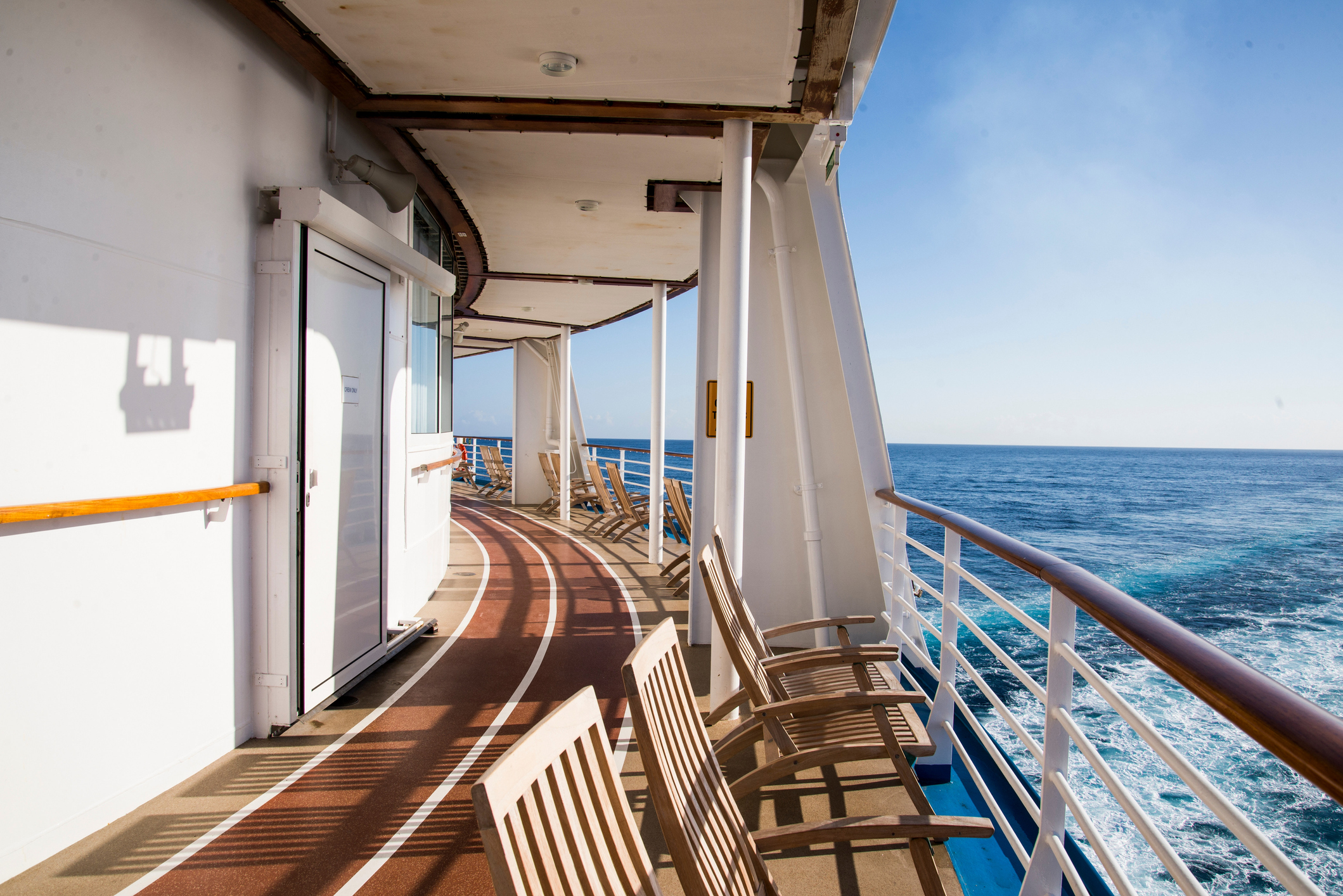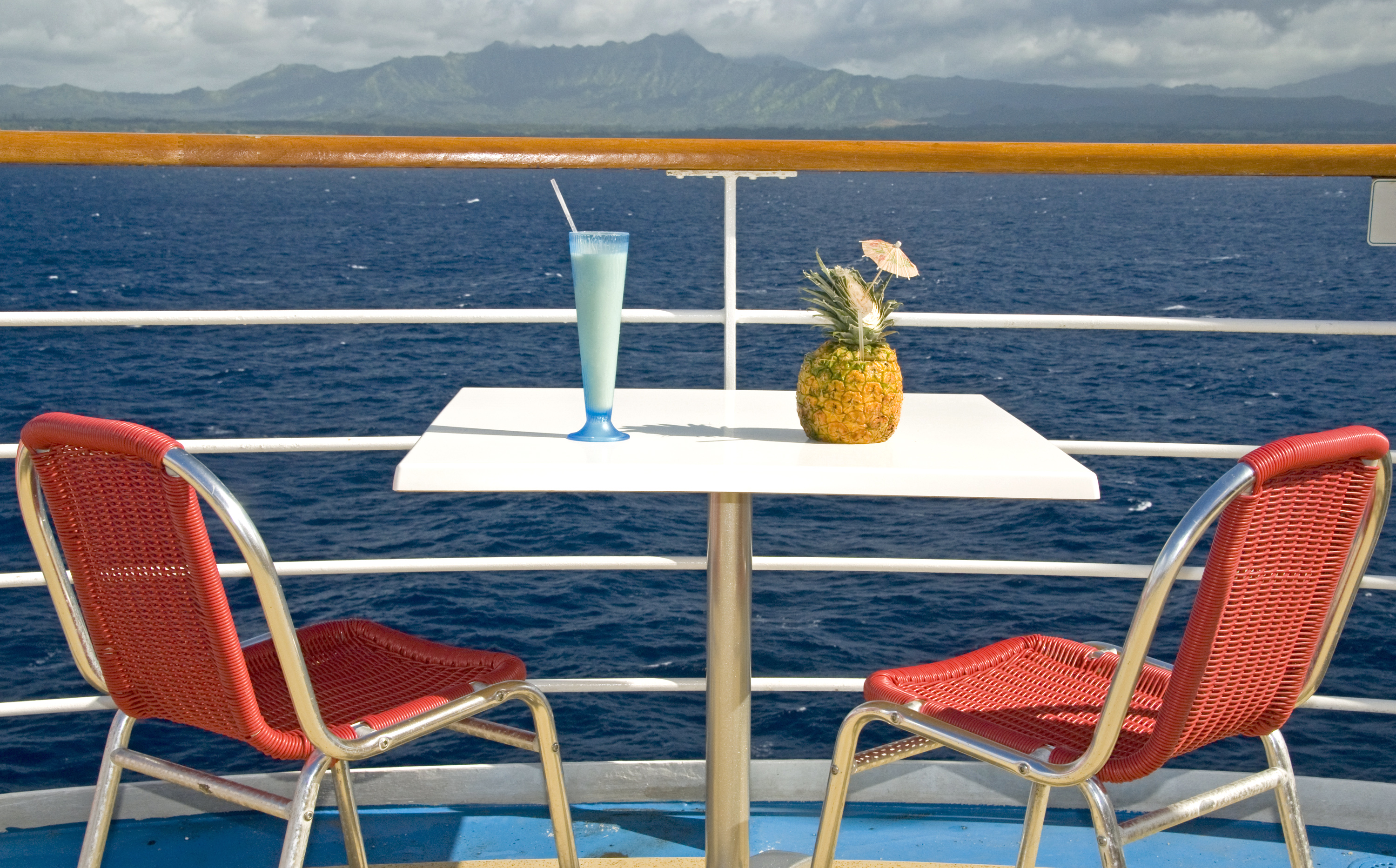Cruise Lines Sue to Block Hawaii’s New Climate Tourism Tax
Your vacation to the Aloha State could come at a higher price tag next year. Here’s why.


Profit and prosper with the best of Kiplinger's advice on investing, taxes, retirement, personal finance and much more. Delivered daily. Enter your email in the box and click Sign Me Up.
You are now subscribed
Your newsletter sign-up was successful
Want to add more newsletters?

Delivered daily
Kiplinger Today
Profit and prosper with the best of Kiplinger's advice on investing, taxes, retirement, personal finance and much more delivered daily. Smart money moves start here.

Sent five days a week
Kiplinger A Step Ahead
Get practical help to make better financial decisions in your everyday life, from spending to savings on top deals.

Delivered daily
Kiplinger Closing Bell
Get today's biggest financial and investing headlines delivered to your inbox every day the U.S. stock market is open.

Sent twice a week
Kiplinger Adviser Intel
Financial pros across the country share best practices and fresh tactics to preserve and grow your wealth.

Delivered weekly
Kiplinger Tax Tips
Trim your federal and state tax bills with practical tax-planning and tax-cutting strategies.

Sent twice a week
Kiplinger Retirement Tips
Your twice-a-week guide to planning and enjoying a financially secure and richly rewarding retirement

Sent bimonthly.
Kiplinger Adviser Angle
Insights for advisers, wealth managers and other financial professionals.

Sent twice a week
Kiplinger Investing Weekly
Your twice-a-week roundup of promising stocks, funds, companies and industries you should consider, ones you should avoid, and why.

Sent weekly for six weeks
Kiplinger Invest for Retirement
Your step-by-step six-part series on how to invest for retirement, from devising a successful strategy to exactly which investments to choose.
If you’re planning to set sail to Hawaii on a cruise next year, your room and board fees could be higher thanks to a new tourism tax.
Hawaii is slated to impose a so-called “green fee” tax next year, which will impact the nightly lodging charges for hotels and vacation rentals. The fee, designed to mitigate climate change in the Aloha State, could impact as many as 300,000 cruise ship passengers annually.
That’s because for the first time, the levies will also target cruise ships docking in Hawaii ports.
From just $107.88 $24.99 for Kiplinger Personal Finance
Become a smarter, better informed investor. Subscribe from just $107.88 $24.99, plus get up to 4 Special Issues

Sign up for Kiplinger’s Free Newsletters
Profit and prosper with the best of expert advice on investing, taxes, retirement, personal finance and more - straight to your e-mail.
Profit and prosper with the best of expert advice - straight to your e-mail.
Opponents of the proposed 2026 Hawaii tourism tax argue that the additional charges could deter tourists from booking cruises to the islands. They suggest that visitors might choose alternative destinations for significant life events like weddings, family holidays, retirements, and honeymoons.
Before the tax kicks in, some opponents are taking legal action.
Cruise Lines International Association filed a complaint on Aug. 27, arguing that the climate impact fees imposed on cruise ships violate federal law in three ways — conflicting with the Tonnage Clause of the U.S. Constitution, freedom of speech protections, and federal navigation laws.
Meanwhile, the state counters that the “green tax” imposed on tourists' nightly lodging accommodations will fund necessary climate and conservation projects, which are “critical” to the health and safety of locals and visitors.
Here’s what you need to know about Hawaii’s planned tourism tax, and how it may impact your 2026 vacation.
What is Hawaii’s tourism tax?
Hawaii's new "green fee" tax, slated to take effect in 2026, expands the transient accommodations tax (TAT) charged on your nightly lodging at a hotel or vacation rental. For the first time, the levies will also target cruise ships that port in the Aloha State.
The tax, as reported by Kiplinger, aims to create a consistent funding source for conservation and rebuilding initiatives in Hawaii.
The measure (Act 96) was signed into law by Hawaii Gov. Josh Green this spring and raises the TAT by 0.75% to 11% beginning in 2026. In 2027, the fee is expected to increase again to 12%.
That’s not all, Hawaii’s four counties can add an extra tax on top of the state TAT. All of them have decided to add the maximum possible, which is another 3%. Overall, tourists could be charged a total tax of 14% per nightly accommodation next year.
According to the governor's office, the green fee is projected to generate $100 million annually. As mentioned, the measure will fund projects including environmental stewardship, climate and hazard resiliency, and sustainable tourism.
For more information: Hawaii Approves First-of-its-Kind ‘Green Fee’ for Tourists.
Cruise operators and local businesses challenge Hawaii tourism tax

Hawaii's new climate impact tax would impose nightly lodging fees on cruise ships as high as 14% starting next year.
A new lawsuit challenges Hawaii's expanded transient accommodations tax, with a major cruise industry group and local tourism businesses claiming the measure is unconstitutional.
Opponents of the tax seek to prevent the so-called “green fee” from taking effect in 2026.
The plaintiffs, led by Cruise Lines International Association, a global advocacy group representing most cruise lines, note the law would also authorize Hawaii counties to collect an additional 3% surcharge, bringing the total tourism tax to 14%.
- Gov. Green says the fee will translate to visitors paying an additional $3 per night on a $400 room stay in a Hawaii hotel, cruise ship, or other rental vacation lodging.
- You may want to keep that in mind if you’re planning to book a popular trip like the Hawaii Disney Cruise Line adventure for you and your loved ones next year.
One of the main concerns of those challenging Hawaii’s new green fee tax is that the new charge may “cause many potential visitors to vacation elsewhere.”
According to the lawsuit, the cruise industry brings in thousands of visitors to Hawaii each year, supporting thousands of local jobs and contributing to an annual economic growth of over $600 million.
The plaintiffs argue that the new tax could have a “devastating” impact on cruise ship operators and local businesses.
As reported first by the Associated Press, the plaintiffs are seeking a preliminary injunction to declare Act 96’s cruise-related provisions unconstitutional and block its enactment on January 1, 2026.
If they are successful in blocking the measure, that could potentially save tourists a couple of hundred dollars in vacation taxes next year.
“No other State imposes comparable fees — and for good reason,” wrote attorneys representing the Cruise Lines International Association in a motion, the AP reported. They added that ports shouldn’t be used by states for their own “revenue-raising interests.”
The defendants, which include state and county finance officials and the Hawaii Department of Taxation, have yet to release a statement on the pending litigation.
For now, stay tuned for developments as we cover how this may impact your travel plans to the Aloha State next year.
Related
Profit and prosper with the best of Kiplinger's advice on investing, taxes, retirement, personal finance and much more. Delivered daily. Enter your email in the box and click Sign Me Up.

Gabriella Cruz-Martínez is a finance journalist with 8 years of experience covering consumer debt, economic policy, and tax.
Gabriella’s work has also appeared in Yahoo Finance, Money Magazine, The Hyde Park Herald, and the Journal Gazette & Times-Courier.
As a reporter and journalist, she enjoys writing stories that empower people from diverse backgrounds about their finances, no matter their stage in life.
-
 Quiz: Do You Know How to Avoid the "Medigap Trap?"
Quiz: Do You Know How to Avoid the "Medigap Trap?"Quiz Test your basic knowledge of the "Medigap Trap" in our quick quiz.
-
 5 Top Tax-Efficient Mutual Funds for Smarter Investing
5 Top Tax-Efficient Mutual Funds for Smarter InvestingMutual funds are many things, but "tax-friendly" usually isn't one of them. These are the exceptions.
-
 AI Sparks Existential Crisis for Software Stocks
AI Sparks Existential Crisis for Software StocksThe Kiplinger Letter Fears that SaaS subscription software could be rendered obsolete by artificial intelligence make investors jittery.
-
 How to Open Your Kid's $1,000 Trump Account
How to Open Your Kid's $1,000 Trump AccountTax Breaks Filing income taxes in 2026? You won't want to miss Form 4547 to claim a $1,000 Trump Account for your child.
-
 In Arkansas and Illinois, Groceries Just Got Cheaper, But Not By Much
In Arkansas and Illinois, Groceries Just Got Cheaper, But Not By MuchFood Prices Arkansas and Illinois are the most recent states to repeal sales tax on groceries. Will it really help shoppers with their food bills?
-
 7 Bad Tax Habits to Kick Right Now
7 Bad Tax Habits to Kick Right NowTax Tips Ditch these seven common habits to sidestep IRS red flags for a smoother, faster 2026 income tax filing.
-
 New Plan Could End Surprise Taxes on Social Security 'Back Pay'
New Plan Could End Surprise Taxes on Social Security 'Back Pay'Social Security Taxes on Social Security benefits are stirring debate again, as recent changes could affect how some retirees file their returns this tax season.
-
 10 Cheapest Places to Live in Colorado
10 Cheapest Places to Live in ColoradoProperty Tax Looking for a cozy cabin near the slopes? These Colorado counties combine reasonable house prices with the state's lowest property tax bills.
-
 New Gambling Tax Rule Impacts Super Bowl 2026 Bets
New Gambling Tax Rule Impacts Super Bowl 2026 BetsTaxable Income When Super Bowl LX hype fades, some fans may be surprised to learn that sports betting tax rules have shifted.
-
 Should You Do Your Own Taxes This Year or Hire a Pro?
Should You Do Your Own Taxes This Year or Hire a Pro?Taxes Doing your own taxes isn’t easy, and hiring a tax pro isn’t cheap. Here’s a guide to help you figure out whether to tackle the job on your own or hire a professional.
-
 Trump $10B IRS Lawsuit Hits an Already Chaotic 2026 Tax Season
Trump $10B IRS Lawsuit Hits an Already Chaotic 2026 Tax SeasonTax Law A new Trump lawsuit and warnings from a tax-industry watchdog point to an IRS under strain, just as millions of taxpayers begin filing their 2025 returns.